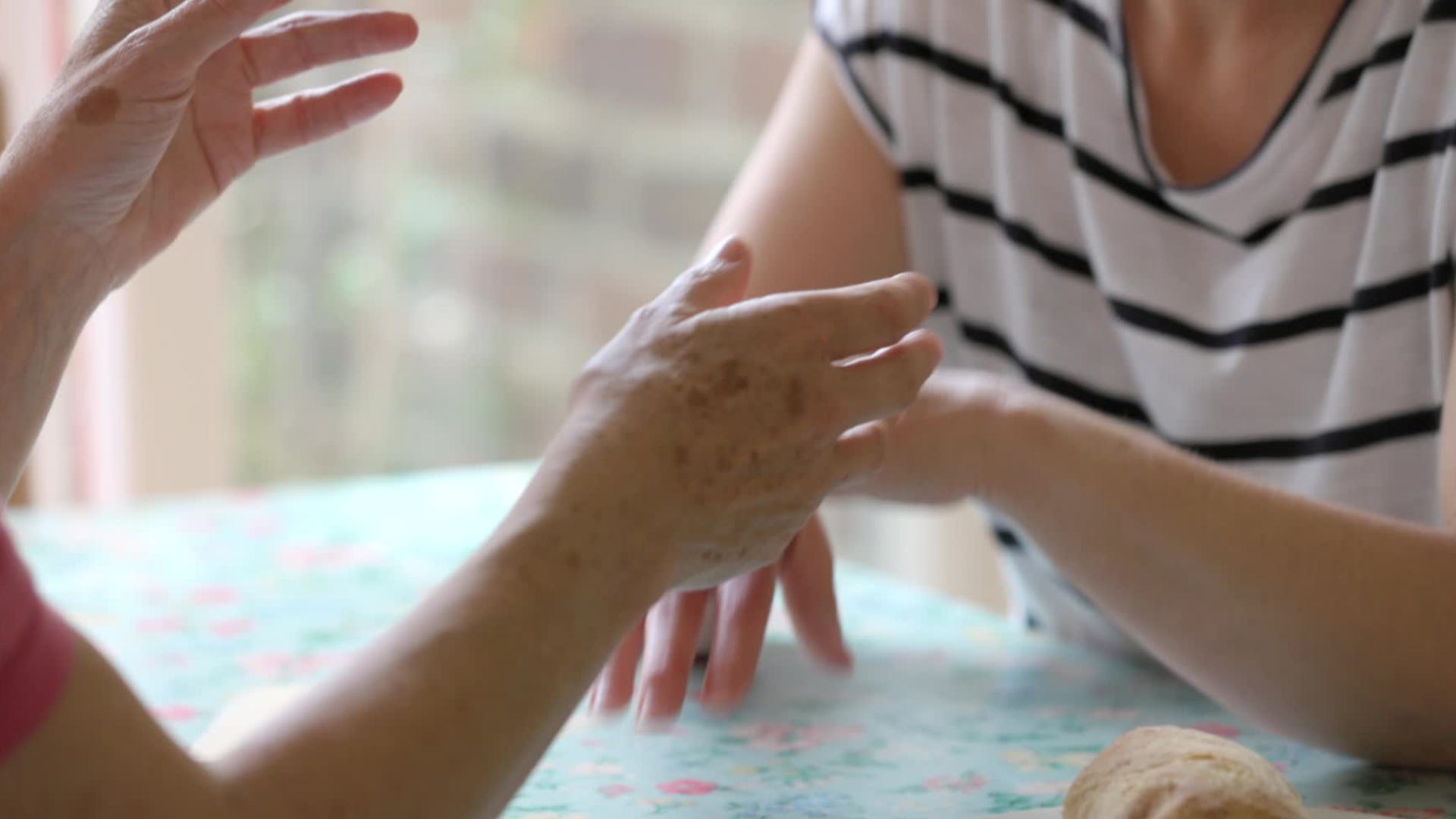Women are receiving incorrect treatment or delayed treatment because medical schools still don’t provide enough training in menopause. Misinformation about estrogen therapy also contributes.

Woman in menopause prescribed antidepressants in medical blunder
Leslie Ann McDonald knew something was wrong when she started skipping workouts and sleeping after school drop-offs.
unbranded – Newsworthy
Leslie Ann McDonald was so tired she often skipped lifting weights.
She would drop her daughter at school and go back to bed. Her body ached. She struggled to sleep. Her brain felt foggy.
Her doctor prescribed an antidepressant, even though the then 36-year-old insisted she wasn’t depressed. She even went to therapy.
It took 10 years to get a correct diagnosis: Perimenopause. The online personal trainer and coach needed hormone therapy.
More than a third of women going through menopause or perimenopause are prescribed Zoloft, Prozac, Wellbutrin or other common antidepressants. Their use among women doubles during these years. More women’s health experts now say the vast majority never needed them. The antidepressants treat their symptoms, rather than the cause, and could make things worse.
“I thought, ‘I don’t feel depressed, but I feel terrible,’” says McDonald, 46, an online fitness coach in the Philadelphia area. “I was miserable and willing to try anything, even if I didn’t think that’s what I needed.”
Women are receiving incorrect treatment or delayed treatment because medical schools still don’t provide enough training in menopause. Misinformation about estrogen therapy also contributes.
A new push by doctors and researchers last week on a Food and Drug Administration panel pushed the agency to remove what they say are outdated warnings on topical menopause treatments that contain estrogen. Now such medications contain a warning of the possibility of breast cancer, and that they aren’t to be used to prevent cardiovascular disease or dementia, and that it increases the risk of strokes, blood clots and probable dementia.
The FDA has yet to rule on the change, but proponents say this delay leads to more women missing needed treatment.
“These women aren’t mentally unstable, they aren’t depressed,” says Maryon Stewart, who conducted a survey of more than 1,000 women in the UK about their menopause experience. She also leads Femmar Corp, a company that pushes for lifestyle changes to help with menopause. “It’s tragic what women go through to try to feel better.”
The push for better perimenopause treatment
When women describe symptoms of perimenopause – including increased anxiety, fatigue and brain fog – doctors often first prescribe antidepressants.
That’s because most doctors – even gynecologists – didn’t receive adequate training on menopause during medical school, according to a study in the Journal of The Menopause Society. Less than one-third of the almost 100 obstetrics and gynecology residency program directors recently surveyed said they received training in their residencies.
It’s also because a 2002 Women’s Health Initiative (WHI) study linked hormone therapy to slightly higher risks of breast cancer, heart attack and stroke in postmenopausal women. It was later found that the risks were mostly found in women who were older when they started hormone therapy.
Use of hormone therapy dropped from about 40% in 1999 to about 5% in 2020, according to the Journal of the American Medical Association.

Menopause: Symptoms, stages and treatment plans
Menopause typically starts around age 45 but can vary widely among individuals.
Hormone therapy is the most effective treatment for menopause, and is the first recommendation, according to the North American Menopause Society.
“Clinicians can be defensive and women can be gaslit and misdiagnosed,” says Heidi Flagg, an OB-GYN, menopause specialist and clinical assistant professor at NYU Grossman School of medicine. “With perimenopause, hormone therapy should always be considered first. We see a profound change in women with their brain fog and feelings of depression and improvements in hot flashes and other symptoms.”
Flagg and other doctors say that if there are major depressive symptoms, they will work with a psychiatrist to see if antidepressants may help in addition to hormone therapy for perimenopause. For the small number of women who cannot take estrogen due to a history of breast cancer or other reasons, doctors do recommend antidepressants as a treatment option.
“We are doing women a disservice by not talking to them about a natural hormone that will improve their mood and sexual function,” Flagg says.
Perimenopause symptoms also can mirror those for anxiety and depression says Dr. Sameena Rahman, an OB-GYN and sex and menopause specialist in Chicago.
“You have this roller coaster of hormones happening during midlife where so many other things are happening,” Rahman says. “It can be confusing for clinicians and patients.”
How doctors hope to change treatment of perimenopause
As more Gen X and older millennial women begin menopause and perimenopause, they are sharing their stories and demanding better treatment. They are not OK with experiencing it like their mothers did. Menopause also has become big business, with more than 40% of U.S. women in perimenopause, menopause or are postmenopausal. And most women are in worse health during menopause, which can last one-third of women’s lives.
“We have a gender health gap,” Dr. Mary Claire Haver, author of “The New Menopause,” says. “Women are ready to be advocates for themselves. They want better choices than their mothers have, and they are embracing it.”
Three states recently have passed menopause laws ranging from continuing education requirements to mandated insurance coverage. And one in four states have introduced legislation around menopause care and education.
The Menopause Society recently launched a $10 million training program to help train more than 25,000 healthcare workers in menopause and perimenopause.
What women in perimenopause should do
Until more doctors – from general practitioners to gynecologists are educated, experts say that women need to educate themselves and become their own advocates.
“I felt so miserable, I was falling asleep at dinner,” McDonald said. “They tested me for Lyme disease. I went to the doctor so many times, complaining about it. And it’s like doctors make you feel like you’re crazy or making it up.”
McDonald spent several years on antidepressants before pushing for an evaluation of her hormone levels. She was later put on a low dose of estrogen and within two weeks felt better.
“You really have to be your own advocate,” she says.

It’s time we talk about perimenopause and menopause
The hormonal and physical changes that come with menopause are rarely discussed openly. Why not?
How to treat perimenopause
Find a provider who specializes in perimenopause or menopause. The Menopause Society, which certifies them, offers a list.
Find a provider early. Women often experience perimenopause at 35, so many will be in perimenopause of menopause for half of their lives, Stewart says.
Educate yourself before you meet with your provider, Flagg says.
Pair any medication with lifestyle changes such as nutrition and exercise to alleviate symptoms, Stewart says.
Talk to other women about it. Share your experience with providers.
“Our job is now to educate our mothers and daughters,” McDonald says. “We went through this, so they don’t have to.”
Laura Trujillo is a national columnist focusing on health and wellness. She is the author of “Stepping Back from the Ledge: A Daughter’s Search for Truth and Renewal,” and can be reached at ltrujillo@usatoday.com.
